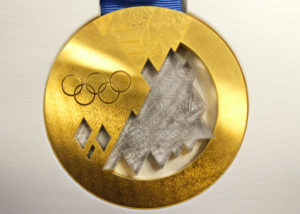 By Garth Rowan, Communications Consultant and member of the Agnes + Day Crisis Intelligence Team.
By Garth Rowan, Communications Consultant and member of the Agnes + Day Crisis Intelligence Team.
When bad things happen, some of us rise and some fall. These are the times when you want to tap into the mindset of an Olympic gold medal winner.
Why? It’s all about high stakes performance and that’s where similarities between the world of the top athlete and the crisis communicator run parallel.
I have been supporting the communications goals of many of our Olympic athletes since the Salt Lake games in 2002. I’ve observed that Olympians have some unique perspectives that the rest of us would love to emulate at our critical moments.
Top athletes believe their world view is normal. But it’s far from it; they think and process information differently; especially how they react to setbacks.
Here are 9 of the most critical Olympic traits that the rest of us could apply in a crisis
1) Confidence
That elusive factor that everyone strives for but few can conjure up at will. The fallacy is thinking that someone else can give it to us. Far from it; not even the best coach can hand us that secret. It comes from within, it’s about getting the small things going well and building from there. Imagine the mogul skiers: the worst thing they could do before the final run would be to focus on which endorsement contracts they will take when they have won. Instead concentrate on the elements that make a great run.
Who doesn’t need help with confidence? So in a crisis, work on getting the small things going well, then you’ll see the big picture improve. Practice is vital for this because that’s all you have to fall back on when the going gets tough.
2) A Support network
For Olympians, it’s really about “Team YOU”; it’s your trainer, psychologist, nutritionist, masseuse, your skills coach and strength coach. We all need a support team. Who’s supporting your crisis team in its hour of need?
3) The road map
The big picture is nice but how you get there is much more important. The best performers set mini goals and break the huge tasks into bite sized chunks. Not good at media interviews? Put a practice plan in place starting this afternoon.
4) Stay in the “Now”
Few people try to do this and fewer succeed. Our lives are so wrapped up in thoughts (often fears) about the future or replaying the past, that we miss out on this moment. Imagine if we were in the bobsled and as we were pushing off, started wondering how winning a medal might change our life! Keep your head in the news conference, not the aftermath.
5) Self assessment
Top athletes are brutally honest about their own performance. They then take the ruthless feedback and develop a plan to do something about what’s not working. Can you do the same thing after a training exercise?
6) Mental toughness
When things go wrong, highly developed coping strategies are essential. Top performers either figure out how to become resilient earlier in their career or they endure the pain of it later on. This is a “must have”. How many times have we all lost sleep after criticism? Not everyone is going to love you; sad but true.
7) Preparation routine
Olympians have to enter the “Zone” on command. Imagining themselves in perfect action before they start helps greatly. Whatever pushes them into an ultimate performance state is required. It’s as if they have an HDTV in their head and loving the perfection they are seeing. What brings you into your zone and grounds you in a critical situation? It should be simple like a few deep breaths, or getting to your best material early.
8) Purposeful practice
There’s practice…and then there’s practice. Most of us kid ourselves that we are practicing, but Olympians take it to new hights; a national team skater will fall 20, 000 times in a career. Practice should be tough! There is always a goal in mind. They dissect the practice so that they can put it back together again and only then can they measure improvement. How do you practice?
9) Grab the best behaviour
Who does things better than you? What behaviours make them great? How do they manage it? Why are you not copying them?
So if you want to improve your crisis communications, think back to what Olympic athletes have in their bag of tricks and learn from the best.
Garth Rowan, a member of Agnes + Day’s Crisis Intelligence Team, is a specialist in media, crisis and risk communications, witness preparation and investor relations presentation training. Garth has two decades of experience as a trainer, corporate strategist, television and radio reporter and lawyer. He specializes in communications skills for situations where the stakes are high. Connect with Garth on Twitter and LinkedIn.
